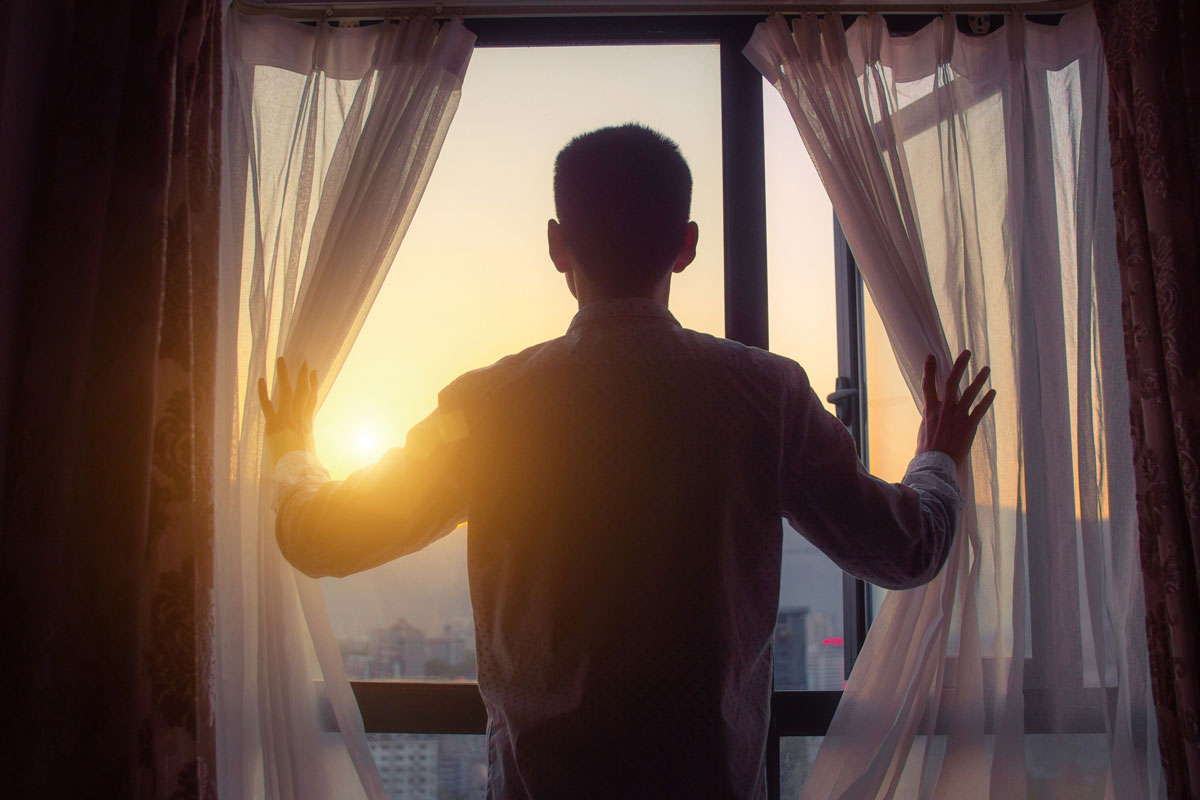In what may seem like a completely contradictory revelation, a new study has found that people can reduce their risk of depression by up to 40 per cent, just by waking up one hour earlier in the morning. And cue a slew of comments from people who reckon waking up earlier will put them in a worse mood.
Researchers at the University of Colorado Boulder and Broad Institute of MIT and Harvard published their findings on May 26 in the journal JAMA Psychiatry, which found how your chronotype can have an effect on your risk of suffering from depression. Your chronotype is something that is essentially stamped onto you at birth, with your genetic make up putting you into one of four categories: bear, wolf, lion or dolphin.
Depending on which animal you associate with will determine when you’re likely to wake up, go to sleep and when you are going to be at your most productive during the day. A previous Finnish study found “the odds of underperformance [at work] were twice as high among the night owls as they were among the early birds in both sexes even after taking account of potentially influential factors, such as sleep duration and morning working hours.”
But, while the Finnish study related to work productivity levels, this latest study from the US is being regarded as one of the most conclusive with regards to the effect sleeping patterns can have on our mental health, something that has never been more paramount given the events of the previous 18 months.
The researchers studied genetic data of up to 850,000 individuals, which included data sourced from 85,000 people who wore sleep trackers for a week, and 250,000 who filled out sleep-preference questionnaires. The reason for such a large sample size? Previous studies looking into the effects of sleeping patterns and chronotypes on depression risk have either used small participant groups or have glossed over the influence of mood disorders.
Lead researcher Iyas Daghlas, M.D. therefore used a method called “mendelian randomisation” – which takes into account the confounding factors on the results of an observational study, but is able to still obtain conclusive results because it also takes into account the measured variation in genes of known function – to help obtain his findings.
As ScienceDaily adds, “More than 340 common genetic variants, including variants in the so-called ‘clock gene’ PER2, are known to influence a person’s chronotype, and genetics collectively explains 12-42% of our sleep timing preference.”
Splitting the overall participant group into smaller samples, and after determining how many of the largest sample group identified as either a morning person, night person, or somewhere in the middle, it was found the “average sleep mid-point was 3 a.m., meaning they went to bed at 11 p.m. and got up at 6 a.m.”
Using genetic information, the research team wanted to find out if people who identify as early risers have a lower risk of depression. The result was a coherent yes.
“Each one-hour earlier sleep midpoint (halfway between bedtime and wake time) corresponded with a 23% lower risk of major depressive disorder.”
“This suggests that if someone who normally goes to bed at 1 a.m. goes to bed at midnight instead and sleeps the same duration, they could cut their risk by 23%; if they go to bed at 11 p.m., they could cut it by about 40%.”
What the study wasn’t able to determine is if people who already do wake up early could also benefit from waking up an hour or so earlier.
As for what exactly causes that drop in risk of depression can be pretty logical. As ScienceDaily says, “some research suggests that getting greater light exposure during the day, which early-risers tend to get, results in a cascade of hormonal impacts that can influence mood.”
“Others note that having a biological clock, or circadian rhythm, that trends differently than most peoples’ can in itself be depressing.”
Iyas Daghlas also concluded, “This study definitely shifts the weight of evidence toward supporting a casual effect of sleep timing on depression.”
